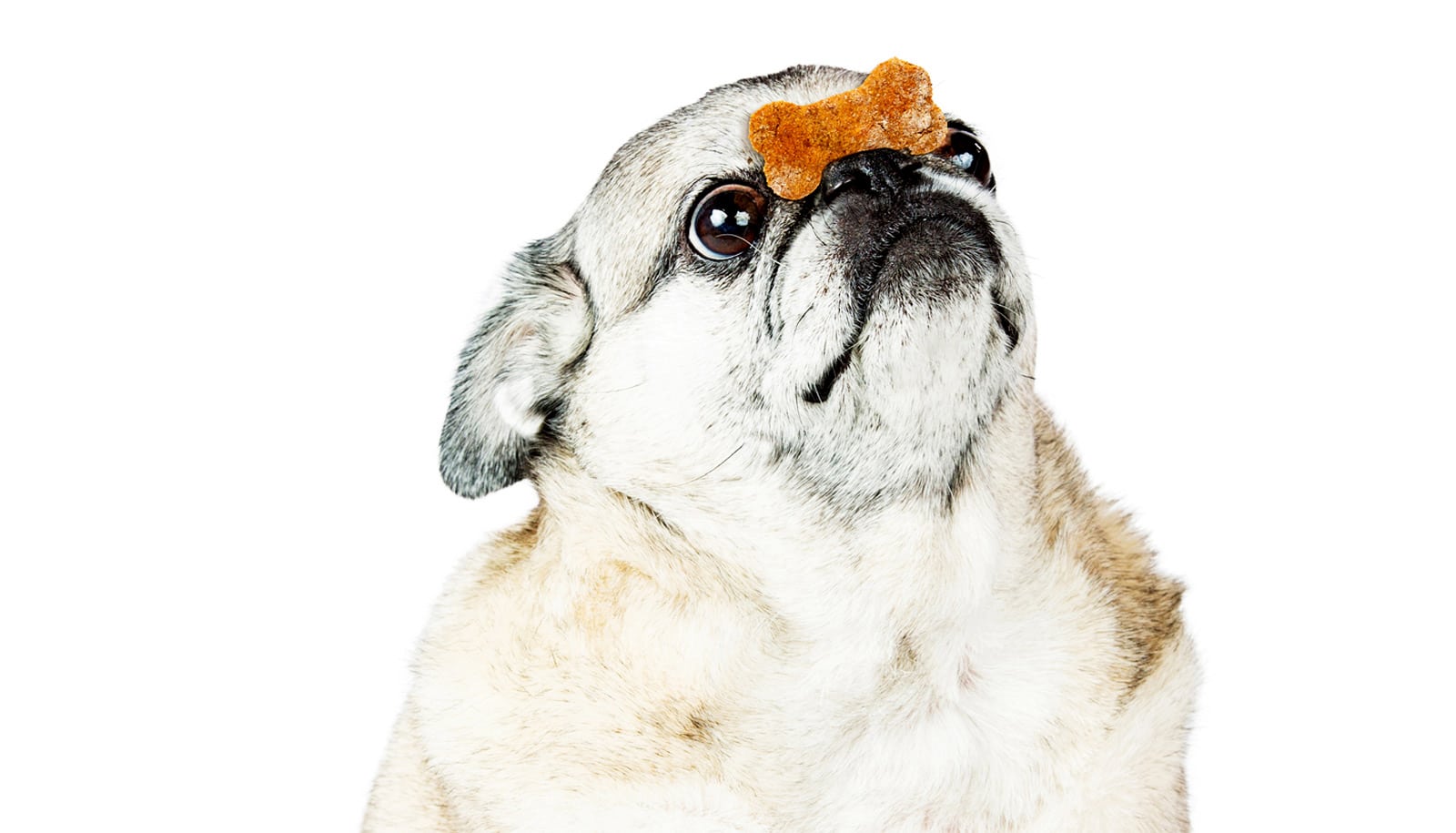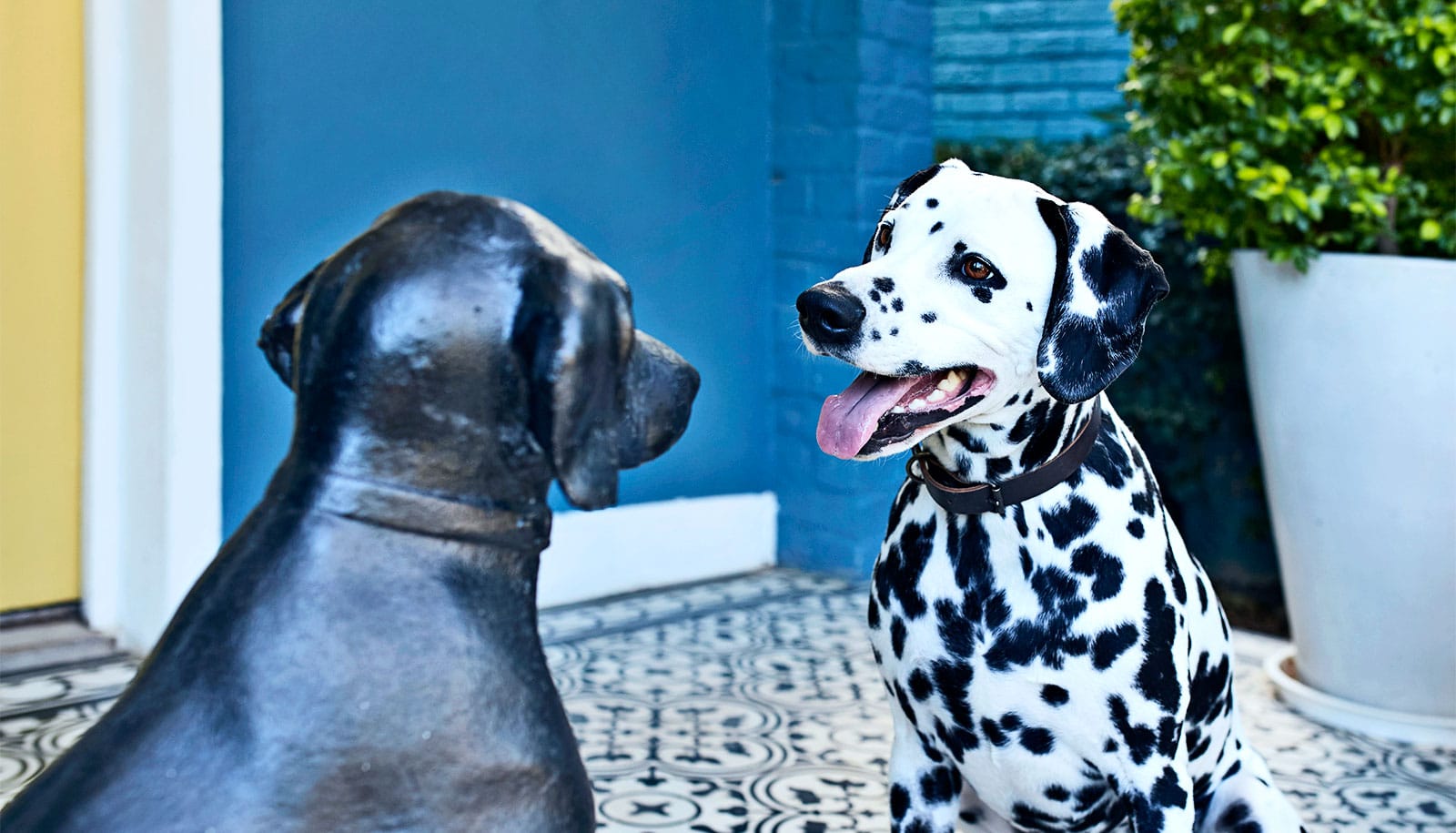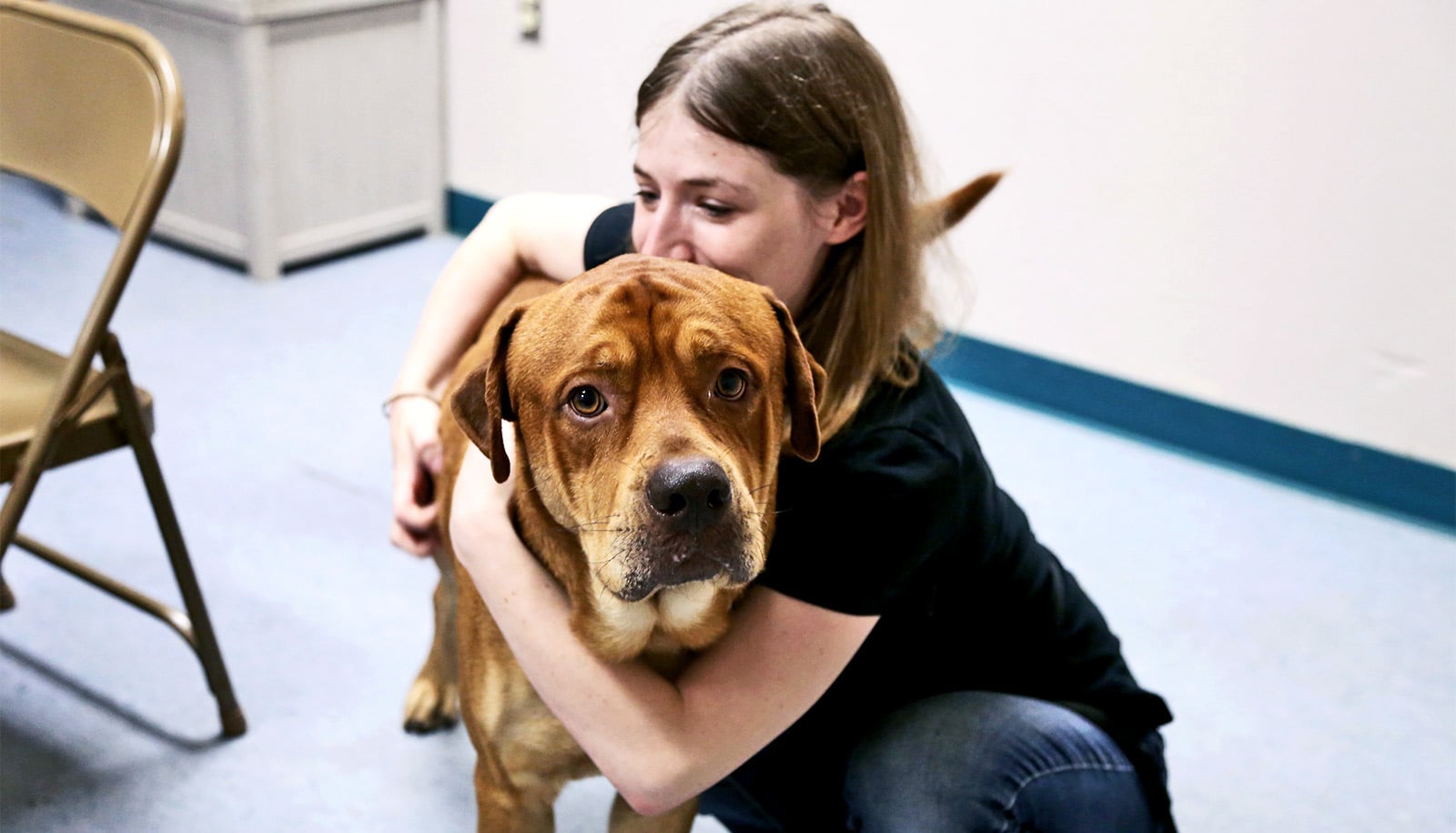New research in Denmark links the weight of dogs to that of their owners.
Among obese owners, 35% of dogs in the study were overweight whereas only 14% of dogs belonging to slim/normal weight owners were overweight.
In addition, the study finds that 29% of the castrated male dogs in the study were heavy/obese versus only 10% of the reproductively intact males.
The researchers studied 268 adult dogs recruited at animal clinics around Zealand and the capital region of Denmark. Of the pets recruited, 20% were either heavy or obese. All the dogs were at least two years old, and not suffering from chronic ailments.
Previous studies have shown that on average, heavy dogs live 1.3 years less than dogs on restrictive diets and that part of the explanation may be an earlier development of osteoarthritis with the heavier weight.
‘Cozy-candy’ treats and overweight dogs
Part of the explanation rests upon how owners manage dog treats. The research results show a correlation between overweight dog owners and the use of dog treats as “hygge-candy” (cozy-candy).
“Whereas normal weight owners tend to use treats for training purposes, overweight owners prefer to provide treats for the sake of hygge. For example, when a person is relaxing on the couch and shares the last bites of a sandwich or a cookie with their dog,” says veterinarian and professor Charlotte R. Bjørnvad of the University of Copenhagen’s department of veterinary clinical sciences. Bjørnvad is the main author of the paper in the journal Preventive Veterinary Medicine.
“Oftentimes, people don’t consider their dog’s weight status to be a problem. And this might contribute to a dog’s being overweight. But being heavy or obese does have a great impact on dog health—which on average results in a shortened lifespan,” according to bioethics professor and article coauthor Peter Sandøe of the department of food and resource economics.
Neutering and spaying
The researchers also looked into how castration and sterilization can be risk factors in relation to dog weight. The study shows that castrated (neutered) male dogs have three times as high a risk of being heavy or obese compared to intact dogs.
On the other hand, the study demonstrated that sterilization has no impact on weight in female dogs. Whether they are intact or not, female dogs have an increased risk of being heavy compared with intact males.
“When males are castrated, they face just as high of a risk of becoming overweight as females. Castration seems to decrease the ability to regulate the appetite in male dogs and at the same time, it might also decrease the incentive to exercise which results in an increased risk of becoming overweight. Therefore, an owner should be careful about how they feed their dog after it has been castrated,” says Bjørnvad.
The researchers hope that this new knowledge raises awareness about canine weight among veterinarians and dog owners, and that it contributes to better obesity prevention and treatment strategies by identifying focus areas for intervention.
The study received funding from Royal Canin, Denmark.
Source: University of Copenhagen



